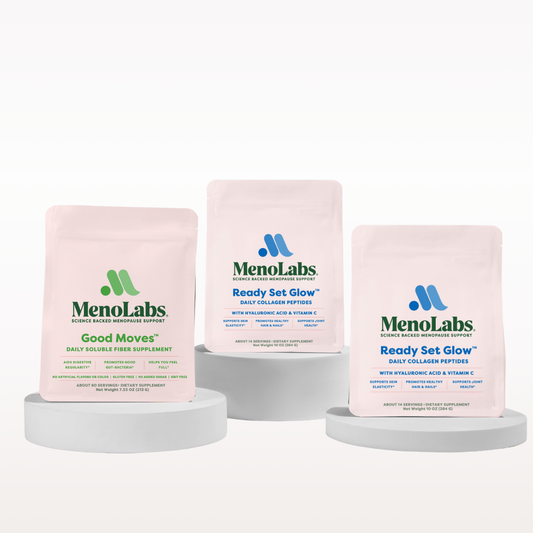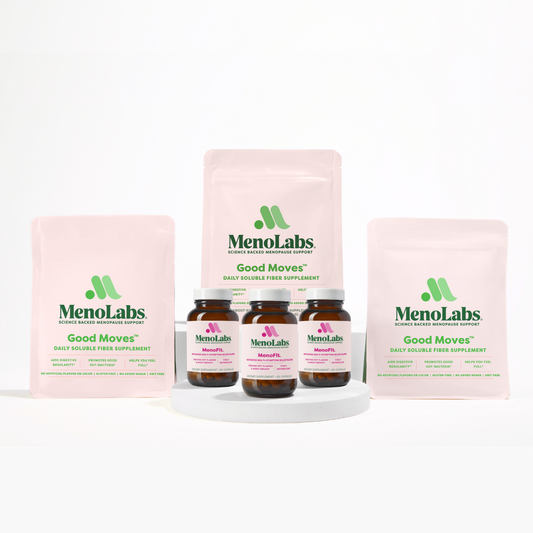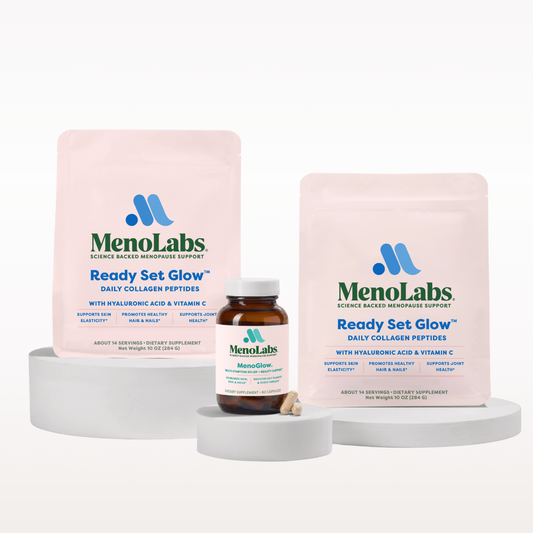
- symptoms
Self-Care Tips for Dealing with Menopause Symptoms
It's not helpful to you or anyone else is you ignore or minimize your symptoms. Rather, a solid self-care practice will help you keep your energy up, stress levels down,...
1 min read
Menopause is hard work — there's no way around that fact. Waking up in the middle of the night because of hot flashes, barely getting enough sleep thanks to insomnia, gaining weight and feeling moody due to hormone fluctuations... the list goes on and on.
That's why menopause is such an important time to practice self-care. It's not helpful to you or anyone else is you ignore or minimize your symptoms. Rather, a solid self-care practice will help you keep your energy up, stress levels down, and can improve your mood.
What Is Self-care in Menopause?
Self-care is just what it sounds like — caring for yourself by making sure that your emotional, physical, and spiritual needs are satisfied. Studies have shown that many women find it important and satisfying to feel busy, educate themselves, and be accepting of the changes that are happening to their bodies during menopause.
Even though menopause is different for every woman, some self-care needs overlapping. So even if not every tip below applies to you, a few likely will.
Care for Your Body
Your body needs a vitamin-rich diet and regular exercise routine to stay healthy and minimize symptoms. If you are not sure where to start with when it comes to healthy cooking that will get you the nutrients you need during menopause, you can take a look at these menopause-friendly recipes. A balanced meal contains 1/4 healthy proteins, 1/4 whole grains, and 1/2 vegetables and fruits.
Relax
Practicing relaxation every day is important for reducing stress. There's no one relaxation technique that works for everyone, but there are a few that experts recommend.
Meditation: In studies, mindfulness meditation was shown to improve anxiety and stress — two issues many women in menopause deal with. You don't have to meditate for a long period of time every day for it to have an impact — even a few minutes can be helpful.
Naps: Naps aren't just for kids! Studies have found that they can relieve stress and tension, and may even improve immune function. Brief, 15-30 minute naps can help you feel refreshed — though if you nap for one hour or longer most days, you may want to check in with your doctor, as it can be a sign of other medical issues.
Baths: Just one 15-minute bath a week may decrease stress hormones and help you sleep better. If you like, add some Epsom salts or essential oils to your bath to calm your nervous system and help you relax and recharge.
Find a New Hobby
Hobbies aren't just a fun distraction; they have proven health benefits. They can lead to lowered stress levels and improved mental health — and if your hobby involves physical activity, it can even lead to physical benefits, like getting in better shape.
Whether it's reconnecting with an old passion or discovering something new, don't write it off as frivolous, or say you don't have the time — engaging in a hobby, whether it's crafting, joining a local running or hiking group, reading, or learning the piano (taking up an instrument in midlife can keep brain cells active and engaged), can have real, tangible benefits for you life. Plus, it's fun!
Practice Gratitude
Practicing gratitude is a great way to take your self-care to the next level. In fact, studies have documented that showing gratitude can improve mental health and help relieve negative emotions. A quick daily gratitude list, with just a few quick entries, can help change your perspective on your day, and even your life. Your list can include your family and friends, nature, material things, recent events that have been enjoyable or meaningful — anything for which you feel thankfulness and emotional attachment.
Related Products
Blend Besties Bundle
Fresh Start Bundle
4.7 / 5.0
(554) 554 total reviews











